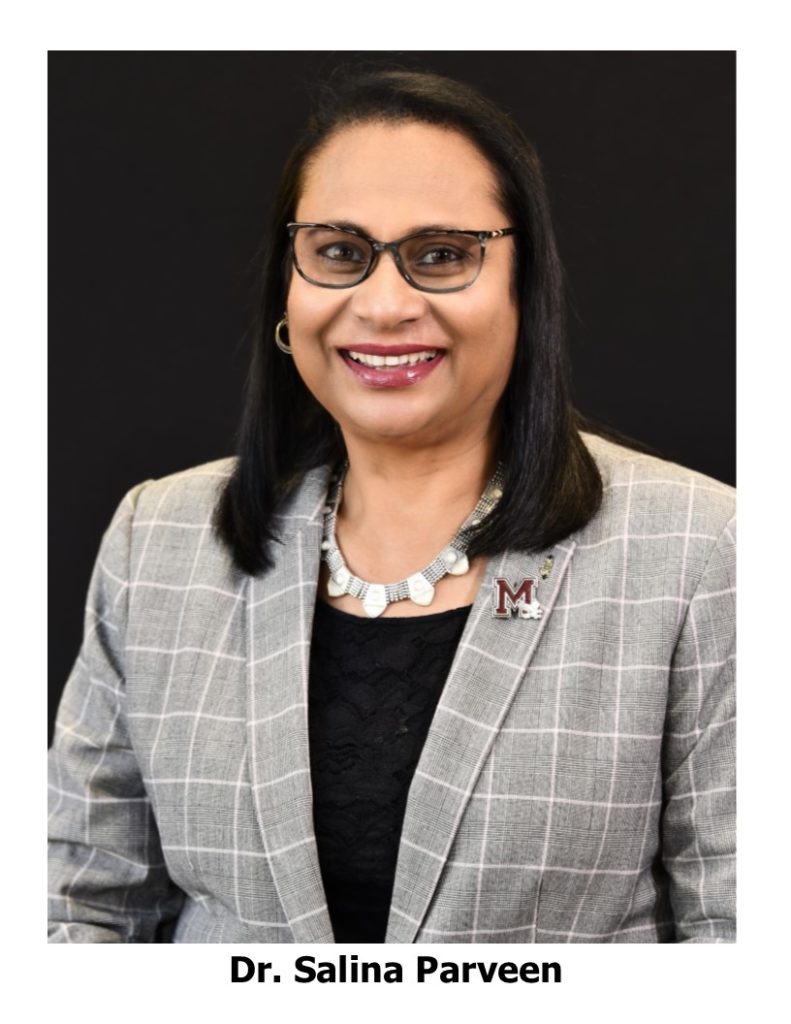
Saturday, May 2, 2020
Editor’s note: An esteemed UMES researcher shares how the COVID19 pandemic has disrupted her team’s focus on time-sensitive work promoting consumer safety and solving problems that confront food production.
By Salina Parveen
The COVID-19 pandemic has brought so many challenges into our lives, especially those of us in higher education teaching laboratory courses and conducting laboratory and field-based research.
When I learned faculty and students would not be allowed to conduct in-person teaching and research in the laboratory, I was frustrated, overwhelmed and nervous about the situation.
Moreover, I was emotionally disturbed as my elder son is working at an intensive care unit in Philadelphia treating COVID-19 patients as a first-year resident. Then, I came to realize I have to control my negative emotions and be strong, focused and optimistic to win this battle. I am proud of him and all the frontline workers for their dedication and sacrifice.
My research team has conducted food safety and water quality research at UMES since 2003. In addition to teaching graduate-level courses this semester, I supervise four doctoral and three masters’ students, two technicians and a couple of undergraduate students who conduct research in these areas. I also serve on several graduate students’ thesis/dissertation committees.
My students are optimistic, hardworking and talented, as they would like to graduate on time. Our research projects are laboratory, field-based and season-dependent. This pandemic is preventing us from working in the laboratory. Therefore, we will miss the (growing) season and will be unable to generate data for student projects/theses/dissertations and publications because they are time sensitive, and we have limited funds.
What should I do? Should I stop everything or can I find an alternative solution?
We continue holding our laboratory meetings a couple of times a month – virtually, and keep in touch with off- and on-campus collaborators to apply for grants and write manuscripts.
My students are writing research proposals and manuscripts, analyzing data, defending research proposals and taking comprehensive exams in their field of study. My technicians and administrators’ support team are remarkable. It seems we are busier than during a normal semester.
I visit my laboratory (with permission, of course) a couple of times a week to check on equipment as well as sensitive and valuable cultures stored in the refrigerator and freezer so that when the quarantine is lifted, we can resume our research to generate critical data and fulfill the objectives of our research projects.
I find myself missing in-person interaction with students and colleagues. I am trying to look at the bright side, however, enjoying the quiet and beautiful campus, with greetings from geese at the entrance of the campus – and one day by a mouse in my office.
Online teaching, specifically the laboratory class, did present a challenge for the last few weeks of the semester. Nonetheless, it was a good experience to teach the laboratory class using very descriptive protocols, flowcharts, diagrams, photos and YouTube videos. I’ve come to realize this pandemic has made us strong and taught us how to survive in a difficult, unprecedented situation.
My family, friends, students, colleagues and I are blessed to be safe and healthy. I am enjoying quality time with my family, even though much of the time my husband is similarly busy in one room with his online teaching responsibilities and my younger son is busy attending his online classes in another.
I also have been trying to catch up with my extended family and friends across the globe, and I hope for the best.
My wish for everyone: stay safe and healthy.
Dr. Salina Parveen is an award-winning food and agricultural sciences professor in UMES’ Department of Agriculture, Food and Resource Sciences.

